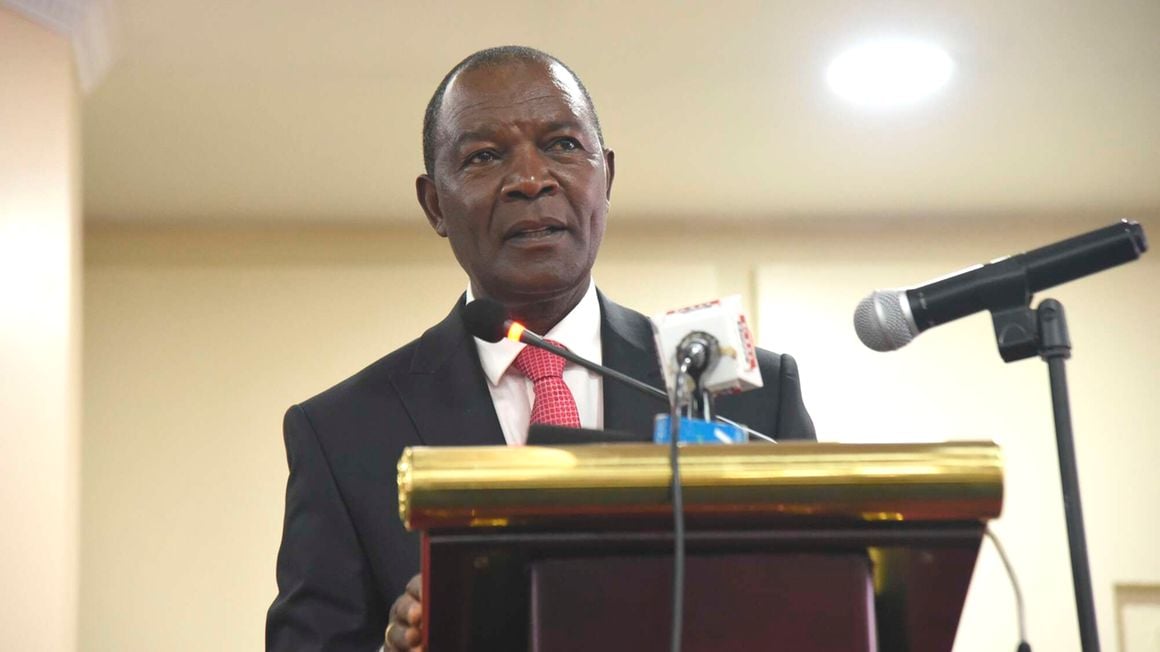Kenya benchmarks Egypt’s 11pc in Eurobond buyback

The Treasury hopes to buy back Eurobond coupons at 11 percent or below to refinance the maturing Sh280 billion ($2 billion) sovereign debt maturing in June next year.
The exchequer has disclosed to the Public Debt and Privatisation Committee as it also targets to keep par terms on rollovers in the new 2023-24 financial year.
“With regard to rollovers, it is assumed that concessional debt will be rolled over at existing terms with no assumption on new commercial debt in FY 2023-2024 and that the commercial international sovereign bond maturing in 2024 will be rolled over with a coupon of 11 percent based on the coupon of the Republic of Egypt most recent issuance in March 2023,” said the Treasury.
The disclosure to the House committee comes amid prior announcements detailing how Kenya was gearing to settle the significant maturity in a year.
President William Ruto revealed last week that Kenya would be looking to buy back at least half of the bond from investors before the close of 2023 in a move seen as an attempt to lessen the burden of making a single bullet payment to meet the maturity next June.
Kenyan dollar-denominated bonds rallied at the end of last week with investors viewing the buyback news as positive as they affirmed that the country would comfortably offset the maturity.
The Central Bank of Kenya (CBK) data, for instance, shows yields on the 2024 Eurobond fell by 0.472 percent between June 16 and June 22 to 12.657 percent from 13.129 percent a week earlier.
The Eurobond, which was Kenya’s first issued in 2014, still attracts the highest yield out of five other Eurobonds which mature in three, four, nine, 11 and 25 years, respectively.
Kenya’s 13-year Eurobond, which matures in 2034, has the lowest yield at 10.283 percent.
The Treasury will be banking on the early redemption of the 2024 Eurobond to not only ease fiscal pressure concerns but also save on upcoming coupon repayments on the paper in December 2023 and next June.
President Ruto has, however, expressed confidence in Kenya’s ability to close out the maturity in what is widely seen as a gamble that would serve as an assurance to bondholders and other external investors.
“The people who are looking to make a kill from this, they think they can scare us and create a narrative around it. I want to promise them that we are going to redeem half of it before the end of the year and we will square it out before time lapses next year. We are in a good space,” he told Bloomberg TV on the sidelines of the Summit for a New Global Financing Pact in Paris, France.
Kenya is expected to use proceeds from recent external financing to buy back part of its 2014 Eurobond holders with the payments being likely sourced from official forex reserves which partly pool its funding from external debt.
The official reserves were recently replenished by funding from the World Bank and a syndicated loan to jump back above four months of import cover, which stands as the statutory requirement.
In new disclosures this week, the CBK said the foreign exchange reserves currently stand at Sh1.066 trillion ($7.379 billion) representing 4.07 months of import cover while noting the reserves continued to provide adequate cover and a buffer against short-term shocks in the foreign exchange market.
Kenya is largely expected to issue a new sovereign bond to refinance the outstanding balance after the buyback.
Under the 2023-2024 financial year, the Treasury has programmed Sh270 billion as borrowing from foreign financial corporations and other international financial institutions, the pair of which make up external commercial loans.
The exchequer wants yields on its next Eurobond to be comparable with Egypt’s Sh210.7 billion ($1.5 billion) debut Sukuk (Islamic bond).

